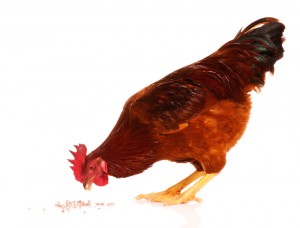The avian flu is making a comeback as winter approaches. An outbreak of the bird flu in Korea last spring resulted in the culling of half a million birds. In Egypt, a seventh person has just died from an H5N1 infection. And the Canadian Food Inspection Agency has confirmed that avian influenza has been found in birds on two farms in Fraser Valley.
 Human cases of the bird flu are rare, and usually only affect people who have close contact with live poultry. Egypt’s cases have been localized in poor areas where people keep and slaughter poultry in their homes. The bird flu has also been reported in the Netherlands, Germany, Britain, India, and southeast Asia.
Human cases of the bird flu are rare, and usually only affect people who have close contact with live poultry. Egypt’s cases have been localized in poor areas where people keep and slaughter poultry in their homes. The bird flu has also been reported in the Netherlands, Germany, Britain, India, and southeast Asia.
In Canada, the two farms have been placed under quarantine. The actual subtype and strain of the virus is not known; testing is underway to determine these factors. The pathogenicity and infection rate of the virus is also not known at this time.
The two farms are a turkey farm in Abbotsford and a broiler breeder farm in Chilliwack. Both facilities had more than 6,000 sudden bird deaths over the weekend. All of the birds on those farms will be humanely euthanized and disposed of. A surveillance zone will be established around the farms and testing will commence in those areas. When the birds are gone, the CFIA will oversee cleaning, disinfection of the barns, vehicles, equipment, and tools, and required repopulation.
The virus does not pose a serious risk to humans through eating poultry products. But to be safe, properly cook all poultry to at least 165°F, as measured with a food thermometer. Be careful to avoid cross-contamination with uncooked foods, and thoroughly wash your hands, utensils, surfaces, and cutting boards after contact with raw poultry.




